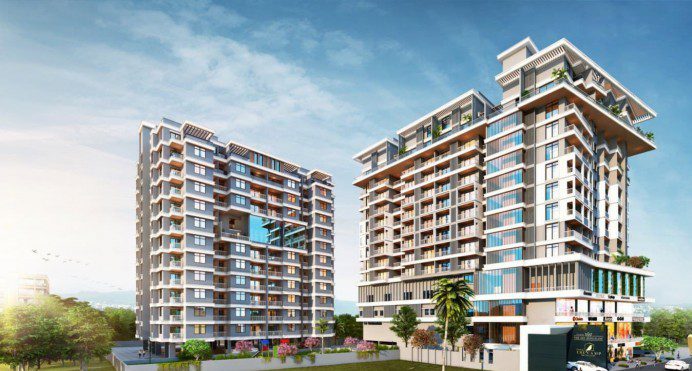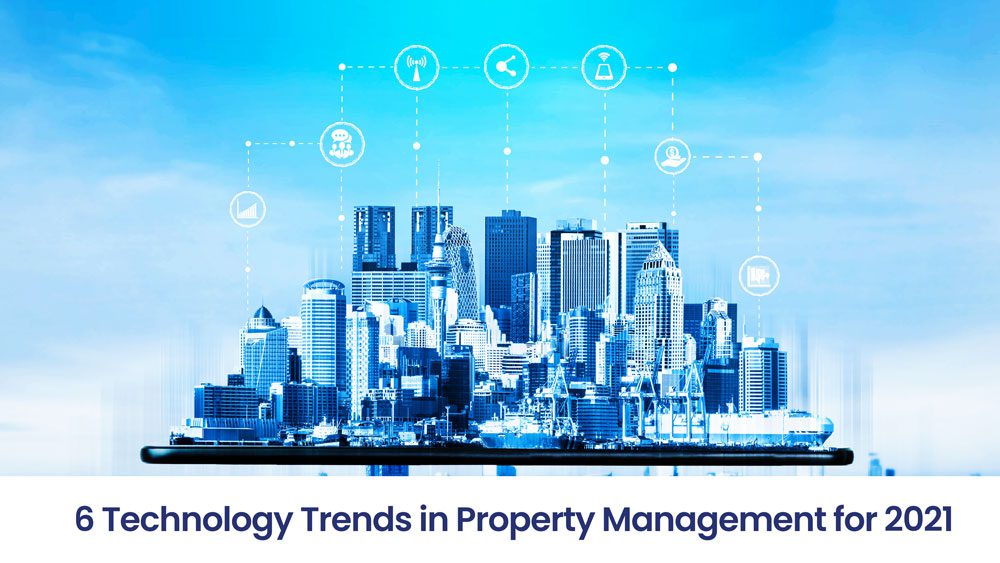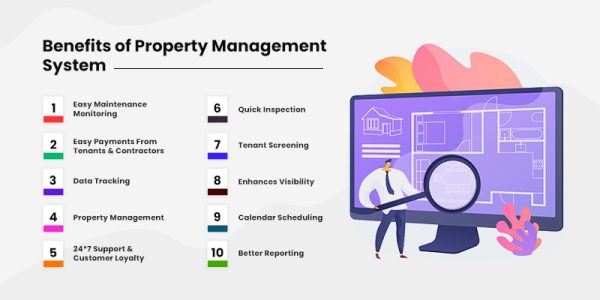
Transforming Real Estate: Sustainable Property Management Practices in India
As the world grapples with environmental challenges, the real estate sector is increasingly embracing sustainable property management practices to minimize its ecological footprint and contribute to a greener future. In India, where rapid urbanization and development are underway, the adoption of sustainable property management is gaining momentum. This blog explores key aspects of sustainable property management in India, highlighting successful practices and their impact on the environment and communities.
How do certifications impact building design
Certifications exert a profound influence on building design by setting benchmarks for sustainability and performance standards. For instance, certifications like LEED and BREEAM guide architects and designers towards incorporating eco-friendly elements such as energy-efficient systems, environmentally conscious materials, and innovative technologies. These standards not only shape the physical attributes of a building but also drive a shift in mindset, emphasizing the importance of minimizing environmental impact. Certifications, acting as a stamp of approval for sustainable practices, drive the adoption of energy-efficient technologies, responsible resource management, and enhanced indoor environmental quality. As a result, building designs are increasingly tailored to meet these criteria, contributing to a more environmentally responsible and resilient built environment. The influence of certifications extends beyond regulatory compliance, fostering a culture of sustainability in the architectural and construction industries.
Read More About How to Choose the Best Property Management Company in Hyderabad
How does integrating renewable energy impact property sustainability
Integrating renewable energy sources into property design has a transformative impact on sustainability. By incorporating technologies such as solar panels, wind turbines, or geothermal systems, properties can generate clean and renewable energy on-site, reducing dependence on traditional fossil fuels. This shift not only contributes to a significant reduction in greenhouse gas emissions but also enhances the property’s resilience to energy market fluctuations. The integration of renewable energy sources aligns with broader sustainability goals, addressing climate change concerns and promoting a more environmentally responsible approach to property management. Furthermore, the adoption of renewable energy often results in long-term cost savings for property owners. While the initial investment in renewable technologies may be relatively high, the reduced reliance on conventional energy sources leads to lower operational expenses over time. This financial incentive, combined with the positive environmental impact, makes the integration of renewable energy an integral component of sustainable property practices.
How does regulatory support influence sustainable property practices
Regulatory support plays a pivotal role in shaping sustainable property practices by establishing frameworks that guide and incentivize environmentally responsible development. Government regulations often set standards for energy efficiency, water conservation, and eco-friendly construction materials, encouraging property developers to adopt sustainable practices. In India, initiatives such as green building certifications and environmental impact assessments are often backed by supportive regulations. These regulations provide a roadmap for property managers to integrate renewable energy sources, optimize resource usage, and implement green design principles. The influence of regulatory support extends beyond compliance; it fosters a culture of sustainability in the real estate sector, creating a positive environment for the adoption of eco-friendly practices that contribute to the overall well-being of communities and the environment.
Read More About Manage a property remotely
How to Key tech shaping India’s property sustainability
The landscape of property sustainability in India is being revolutionized by key technological innovations. Smart building systems, Internet of Things (IoT) applications, and data analytics are emerging as pivotal tools for efficient resource management. These technologies enable real-time monitoring and optimization of energy consumption, water usage, and overall building performance. Additionally, advancements in green construction materials and design software contribute to more eco-friendly structures. The integration of these technologies not only enhances operational efficiency but also aligns with environmental goals, making India’s property sector a forefront runner in embracing tech-driven solutions for sustainable and resilient real estate practices.
How can sustainable property management practices be effectively implemented in India.
Implementing sustainable property management practices in India requires a comprehensive approach that considers environmental, social, and economic factors. Firstly, there is a need for stringent regulations and incentives to encourage developers and property owners to adopt eco-friendly construction materials and energy-efficient technologies. Government bodies can play a pivotal role in promoting green certifications and standards. Additionally, fostering awareness among stakeholders about the benefits of sustainability is crucial. This includes educating property managers, tenants, and construction professionals on resource conservation, waste reduction, and the use of renewable energy sources. Collaborative efforts between the public and private sectors, as well as the integration of smart technologies for efficient energy and water management, can further enhance the implementation of sustainable practices. By creating a supportive ecosystem and emphasizing the long-term advantages, India can pave the way for a more sustainable and resilient real estate industry.
How can the Indian real estate industry effectively integrate sustainable
The integration of sustainable practices in the Indian real estate industry necessitates a multifaceted approach. Firstly, there is a critical need for stringent regulations and incentives that encourage developers to prioritize eco-friendly construction materials and energy-efficient technologies. Government policies should advocate for green certifications and standards, creating a framework for sustainable development. Simultaneously, industry stakeholders need to prioritize awareness and education initiatives, ensuring that property managers and construction professionals are well-informed about the benefits of sustainable practices. Collaborative efforts, both public and private, can drive the incorporation of smart technologies for efficient energy and water management. By fostering a conducive environment and emphasizing the long-term gains, the Indian real estate sector can effectively transition towards sustainable property management, contributing to a more environmentally conscious and resilient urban landscape.
Conclusion:
As India continues to urbanize and expand, the integration of sustainable property management practices is crucial for mitigating environmental impact and creating resilient, eco-friendly communities. The journey towards sustainability in real estate is dynamic, with ongoing innovations and collaborative efforts shaping a more sustainable future for India’s built environment.
Related Posts
The Best Residential Plots for Sale in Amaravati
The Best Residential Plots for Sale in Amaravati: A Comprehensive Guide Amaravati, the vibrant capital…
Top Locations for CRDA Approved Plots in Amaravathi
Top Locations for CRDA Approved Plots in Amaravathi Choosing the right location for investing in…
Why Invest in CRDA Approved Plots in Amaravathi
Why Invest in CRDA Approved Plots in Amaravathi Investing in CRDA (Capital Region Development Authority)…
How to Create a Tenant-Friendly Property: Tips for Landlords
Title: Why Invest in CRDA Approved Plots in Amaravathi Investing in CRDA (Capital Region Development…
The Role of Technology in Modern Property Management
Streamlining Property Management: The Impact of Technology in Modern Real Estate In the ever-evolving landscape…
Common Challenges in Tenant Management and How to Overcome Them
Common Challenges in Tenant Management and How to Overcome Them Tenant management is a crucial…
Essential Qualities to Look for in a Property Management Company
Essential Qualities to Look for in a Property Management Company Choosing the right property management…
Tips for Building a Strong Community in Multi-Family Rental Properties
10 Proven Strategies for Cultivating a Thriving Community in Multi-Family Rental Properties In the realm…
Best Practices for Conducting Background Checks on Potential Tenants
Ensuring Reliable Tenants: Best Practices for Background Checks In the realm of property management, securing…
Integrating Advanced Tech in Property Management
Integrating Advanced Technology into Property Management Services for Enhanced Efficiency In an era defined by…
Cost-Effective Solutions for Managing Maintenance in Property Management Services
Cost-Effective Solutions for Managing Maintenance in Property Management Services. In the realm of property management…
The Role of Property Management in Community Living
The Role of Property Management in Community Living Property management plays a pivotal role in…
Effective Tenant Retention Strategies
Effective Tenant Retention Strategies Effective tenant retention strategies are essential for landlords and property…
Benefits of Professional Property Management for Overseas Investors.
Benefits of Professional Property Management for Overseas Investors. Professional property management offers invaluable benefits for overseas…
The Future of Real Estate: Trends in Property Management
The Future of Real Estate: Trends in Property Management The future of real estate holds…


















